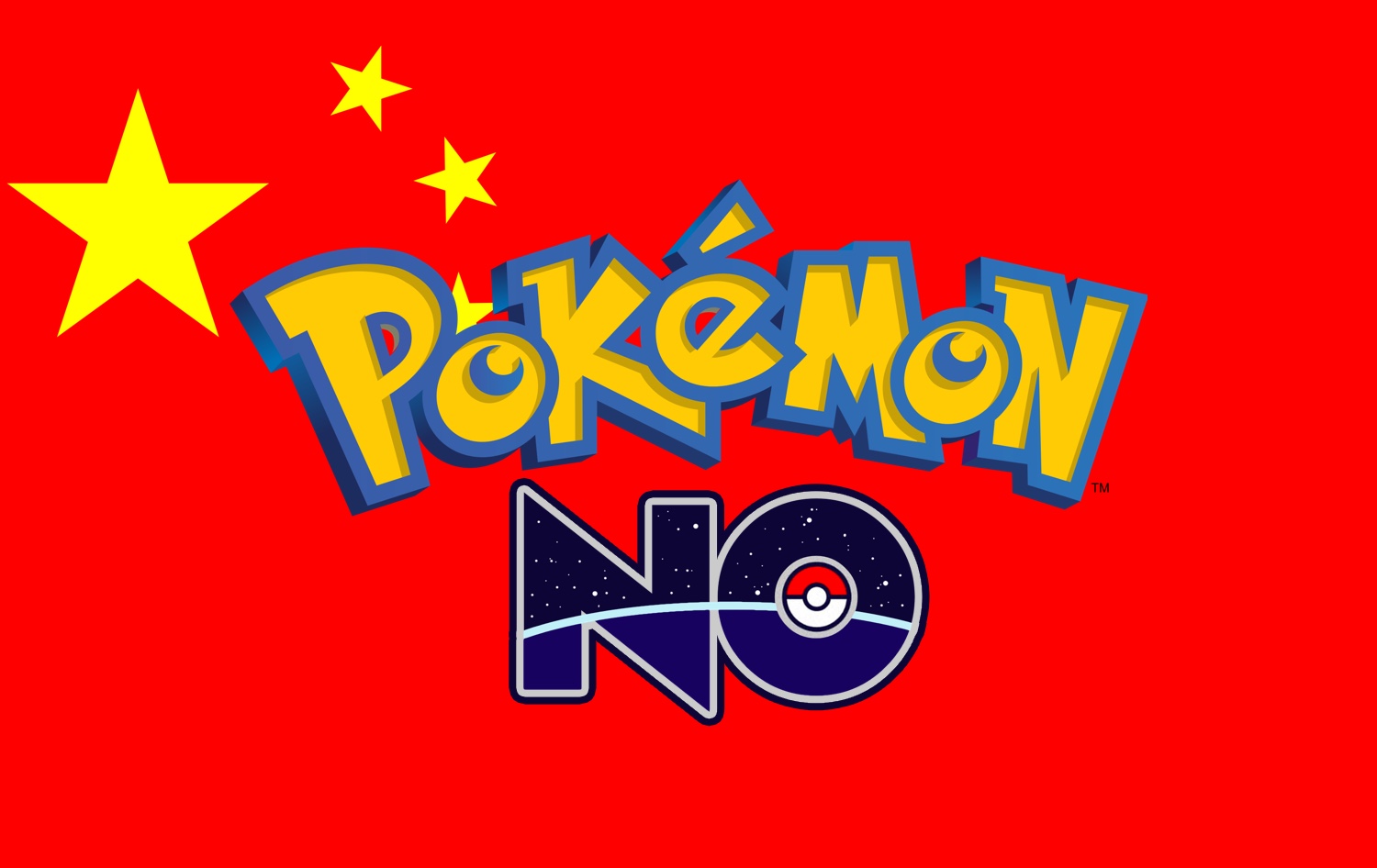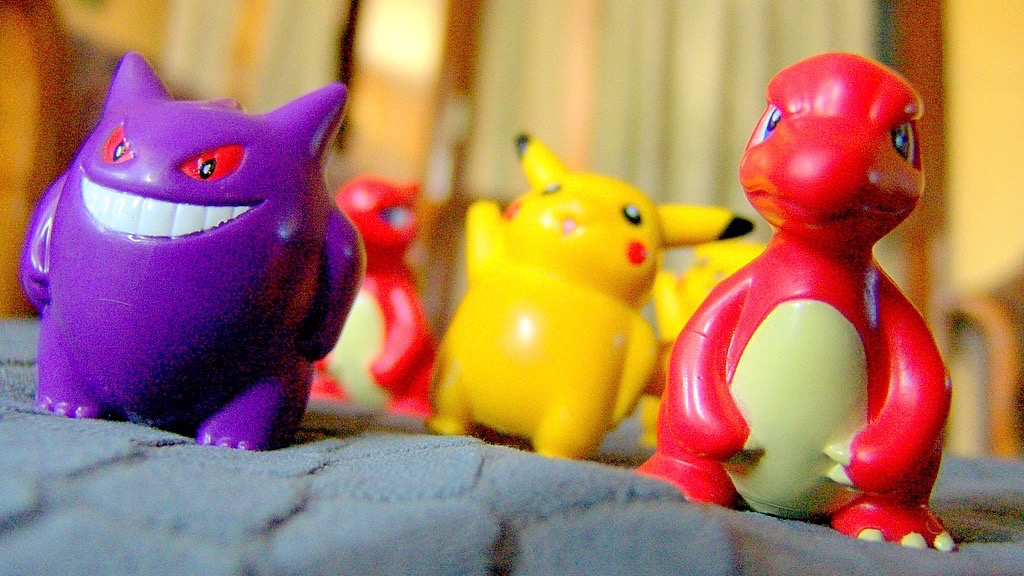
Even if you’ve been living under a rock, you’re probably aware of the Pokemon Gophenomenon by now (if for no other reason that you’ve probably had kids crawl under your rock looking for Pokemon to catch). Rather inexplicably, the game isn’t available anywhere in Asia yet, but it is almost certainly coming sooner or later.
Well, sooner to later to most countries. But there’s good reason to believe it might never be coming to China.
The essence of Pokemon Go
To understand why, you need to know a little about Pokemon Go and its origins. The game, although it licenses The Pokemon Company’s Pokemon IP, was developed by American mobile game developer Niantic Labs, an offshoot of Google. The game users augmented reality and location-tracking on users’ phones, mapping virtual Pokemon into the real world to reward players who get outside and explore.
This exploration has already had some unintended consequences. Pokemon Go players havefound dead bodies (several, actually), fallen off cliffs, and trespassed in all sorts of places(sometimes even getting shot at by property owners).
You can understand why a game like that might not appeal to Chinese authorities.

The problem with Pokemon Go
China’s government is, to put it mildly, a little bit uptight when it comes to foreigners and GPS coordinates. In 2013, when Coca-Cola made use of location-tracking services in China, it was accused of breaking the law. And when Yang Rui*, the host of a state media program dedicated to fostering productive dialogue between China and the rest of the world, wrote on his microblog that “Foreign spies seek out Chinese girls to mask their espionage and pretend to be tourists while compiling maps and GPS data for Japan, Korea and the West,” he was applauded by many. What seemed to most foreigners like paranoid nonsense apparently seemed reasonable enough to Yang Rui’s bosses that he retained his position as host of the show despite the controversy.
Pokemon Go, although it’s not available in China, is already making people nervous. Apopular Weibo conspiracy theory goes that the entire game is a US-Japanese plot to GPS map China and determine the locations of Chinese military bases to facilitate quick strikes if a war ever breaks out.
That’s ludicrous, of course, but Chinese authorities probably are concerned about the game, although no one has yet said as much publicly. Here’s why they might be concerned:
- Niantic is American and closely associated with Google, which is probably the Chinese government’s least favorite American tech company. The government doesn’t want GPS data on the real-time movements of millions of Chinese people in the hands of Google.
- Pokemon Go is not an American military conspiracy, but the game certainly could lead to people wandering around Chinese military bases and secret areas looking for Pokemon. The only way to ensure that didn’t happen would be to provide Niantic with GPS data for all sensitive locations the government wants excluded from the game, but of course that’s not data China would ever hand over to a foreign company.
- Looking at the Pokemon Go movement patterns could reveal military bases and other sensitive areas to Niantic because the company would see where users don’t go. If there’s a big black spot where monsters are spawning but users aren’t going to catch them, Niantic could reasonably assume that there was something there people were being kept away from.
Basically, a wildly-popular foreign game that uses constant location tracking is likely to be perceived as a possible intelligence threat.

In this climate? No way.
Approval of Pokemon Go seems especially unlikely in the current climate of tightening control over the mobile game industry. On July 1, stringent new rules went into effect requiring that all mobile games launched in China be pre-approved by Chinese regulatory body SAPPRFT. Game developers are already concerned that the harsh rules will makeexistence as an indie or startup mobile game developer in China impossible.
If Chinese authorities are willing to destroy their own indie gaming industry and a lot of mobile gaming SMEs in the name of tighter controls, it seems very unlikely they’ll be willing to approve a foreign-made game that poses a potential security threat. From authorities’ perspective, there’s really no upside to that.
Plus, the absence of Pokemon Go in China allows domestic clones to flourish. As my colleague Steven reported last week, a Pokemon Go clone called City Spirit Go is already topping Chinese app stores. If it’s a Chinese company that’s cashing in on the Poke-mania, that’s better for China than having all of those users (and their wallets) focused on an American firm.
To launch in China, Pokemon Go would need to go through SAPPRFT’s pre-approval process, and in the current climate, I see no reason to believe SAPPRFT would approve the game. Sorry, Chinese Pokemon Go fans, but if you want to play the game anytime soon I’m guessing you’ll have to try one of those ridiculous workarounds because an official domestic version is probably not forthcoming.
*In the interest of full disclosure, readers should know that I am not impartial on the subject of Yang Rui. I appeared as a guest on his show several times, but following his comments about foreigners, I publicly called for him to be fired. In return, he posted some very nasty things about me, suggested that the police should investigate me, and threatened to sue me.

Walang komento:
Mag-post ng isang Komento